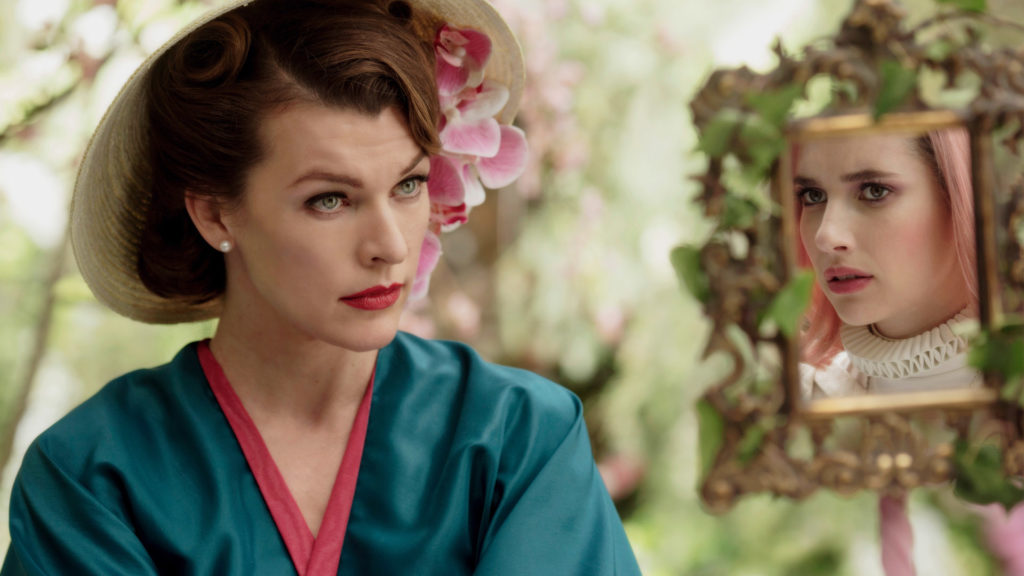Contracts (DIR. Alex Chung)
Critics Jean-Luc Comolli and Paul Narboni once suggested that all films were inherently political because, even when a film lacks an overt political bent, its refusal to question the politics of its world is an acceptance of said politics. This lesson in film theory may sound like it is coming out of nowhere, but it serves a purpose, namely in explaining that Alex Chung’s Contracts—which had its world premiere at Toronto After Dark—is one of the most politically unethical films in recent memory.
Contracts tells the story—that term being used loosely—of an assassin who begins killing other assassins, leading to a concentrated effort to find and stop them. This could be a decent setup and, truth be told, it is for stretches at a time. The issue comes with the film’s attempts at narrative around the fight scenes. Between its advocacy of torture, its incredibly racist bent, and its absolute and utter failure of the Bechdel test (without giving much away, don’t expect many women in this film), Chung’s film refuses to question its own ideology, leading to a certain fascist tendency which may well be the result of ignorance instead of malice. In fact, it likely is ignorance as there is not much internal logic to speak of.
It would be problematic to just write the film off because of its ideology. However, its form can also be written off. Beyond the narrative issues, the film also has a stilted screenplay and its performed at various levels of overacting, underacting and nonacting by the film’s seemingly nonprofessional cast. At times, the film genuinely appears to be something a bunch of people made in high school.
Contracts is not a total failure, however. As an experienced stunt director and fight choreographer, Chung has provided entertaining and creative fight scenes. The quality falls somewhere between the old school Jackie Chan-style fight scenes, and extreme brutality. It’s too bad these scenes are trapped in a discouraging movie.
Sidebar: Torontonians will have fun playing “spot the York U shots.”
**********
Paradise Hills (DIR. Alice Waddington)
There is a strange phenomenon going on in genre film and television right now which questions the nature of paradise. What is paradise and how can we know if we’re there? Alice Waddington barely even attempts to make the viewer believe that her paradise is real in Paradise Hills, preferring to stick to the original definition of a utopia: the idea that no land could be that perfect. If you think you have found yourself in a utopian paradise, there is probably something very wrong.
Uma (Emma Roberts) wakes up in such a scenario, stuck in a beautiful heavenly world that she is not allowed to leave. It soon becomes apparent that this is a “Stepford Wives”-style paradise, where women are taught to be less rebellious, less creative and generally less troublesome. In other words, where women are taught to not question authority.
Waddington includes two very important elements that make the film work, an impeccable cast and the general premise of the film’s version of paradise. The performances are all great, but the standout is the evil Duchess of Paradise Hills played by Hellboy’s Milla Jovovich, a woman who can go from sweet and caring to venomous and malicious in the blink of an eye. Her performance, and everybody else’s, are greatly aided by the costume design and art direction (the neon backgrounds, the colourful props, the flowery costumes). Paradise Hills sometimes doesn’t look like it should be live-action, as if it is the visual representation of the taste of candy.
If the narrative doesn’t particularly turn your crank, you’ll most certainly be satisfied by the art of Paradise Hills’ filmmaking.
**********
For more information on the festival, visit the official Toronto After Dark website.
Do You Tweet? Follow These Tweeple:
Toronto After Dark: @TADFilmFest
Shahbaz Khayambashi: @Shakhayam






Be the first to comment